We dream, research, plan, prepare, pack, say goodbye and finally board a plane for our new destination. We think we’ve done everything we possibly can to prepare ourselves and our children for the new life ahead. But have we considered the developmental impact on our children? What is different about parenting abroad? How do our roles change and evolve when we are raising Third Culture Kids (TCKs)?
Let’s explore these questions.
(If you’re not sure what a TCK is, find out more here.)
Their anchor in a shifting world: You
additional challenges of parenting abroad
So, we get on that plane and within a few hours our child’s world is turned upside down and inside out. Sights, sounds, tastes, climate, friends, family connections, teachers, routines, clubs, physical home, transportation, clothing – it ALL changes.
What remains? In the best (and most common cases) the family unit (parents and siblings) remains the same. Is it any wonder then that children become more clingy (where else would they turn)? Or that they direct all their (teenage) anger at you? They have no other outlet for it. The ability of children to anticipate and plan for change is different from that of adults. They may adjust to change more quickly but the initial shock can be harsher.
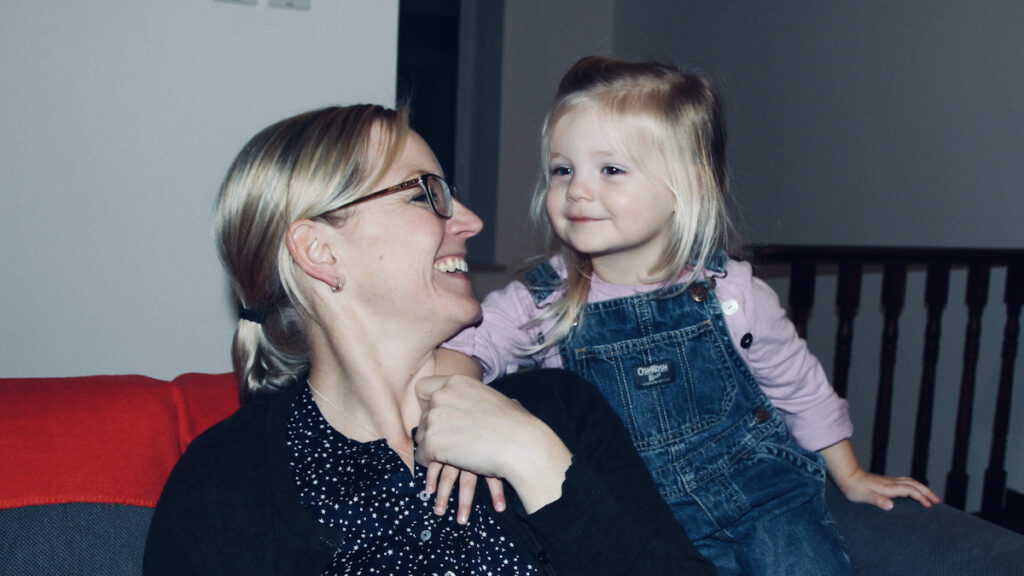
What does this mean for you?
Quite simply you are all they have at this point, which means you have to proceed with patience and caution to provide the stability and comfort they need. Yes, even if you are reeling yourself from all the impressions and immediate requirements of getting started in a new place.
You can prepare a little bit for this time by doing your research on logistics and by packing some familiar items in your suitcase. Young children might love the continuity of using the breakfast bowl they know from home. All children (and adults) may be comforted by their own pillow case. These are small items that can easily be packed but might make a big difference.
Your little people will look to you for guidance on how to act and behave and will model your behaviour. Try to remain curious and open to all the new experiences you are having. You’re not just making memories, you’re influencing another human’s perception, coping skills and resilience.
It's just a phase
Like anything, setting out in a new place a phase that get easier as you build new local connections and networks. When the children are integrated at school and have new friends some of the pressure will be taken off you. But it won’t completely go away. As long as you are raising your children outside of a more permanent support network of family & friends, the importance of you as a parent as their anchor remains high.
Who am I? A parent's weightier role in children's identity development when parenting abroad
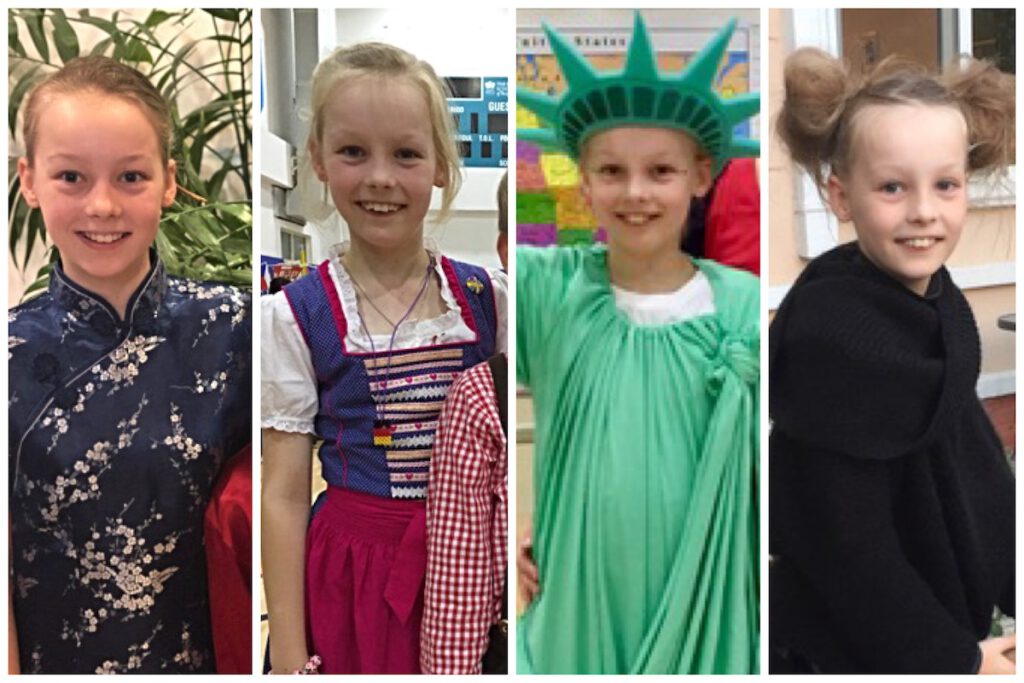
When introducing yourself, how often do you start with “I’m (name) from (country).” In many cultures identity is fused to national or cultural identity. But what if you don’t identify with a country? Or you identify with more than one? This is the conundrum faced by TCKs and global nomads of all ages.
As parents and caregivers we need to free ourselves and our children from these self-imposed restrictions and teach them that “who” they are isn’t tied to their passport. Identity is personal and unique. Knowing who we are gives us the confidence to step out into the world with our whole self, our opinions and quirks. We feel less of a need to hide or change. This doesn’t mean we can’t adapt and evolve, but it does mean we can do so consciously.
Identity development model
Parents are anchors during transitions or other life changes (see above). But our roles go beyond that. In globally mobile families the weight of parent’s role in their child’s identity development is greater than in families that stay put. The following model by philosopher Barabara Knuckels (read more here) explains three forces in the process of identity formation.
In an upbringing with low mobility a child’s identity is formed (over time) by the combined influences of family, community and place (image 1). The interaction and push/pull between these anchors forms a web of community, shared history, cultural norms and values around them. These contribute to a deep sense of belonging and an understanding of the system they are in, its inner workings, expectations and the duties of each member.
But there is more. This model has both anchors and mirrors. How the child is seen and what is reflected back at them from each element is crucial to the development of their identity. Positive message are reinforced. Negative messages too, but they can be balanced out by positive ones, because information is coming from multiple sources.
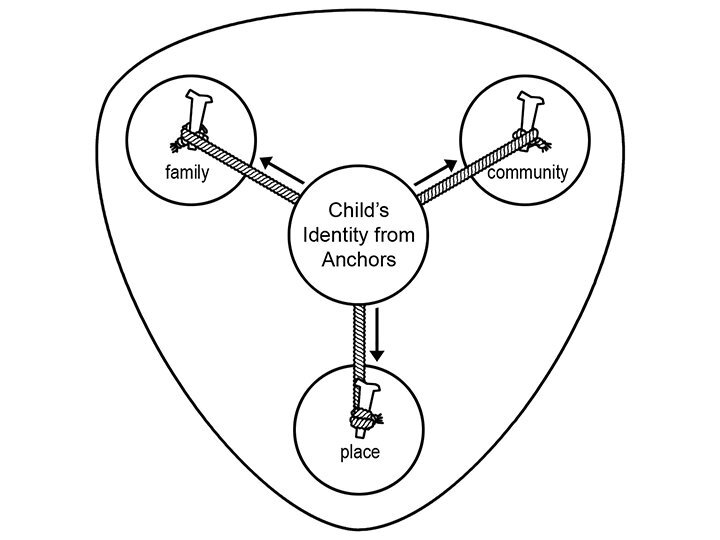
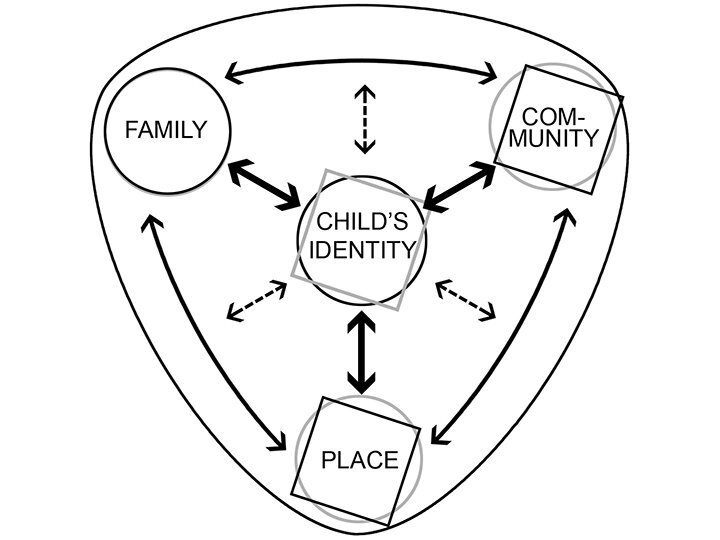
When we move all that usually remains the same is family. Community and place, as well as the interrelationships between all three anchors, fall away (image 2). For a while the nuclear family is all that remains to build and form a child’s identity. The messages we send, the behaviour we model – everything is mirrored back without any counterbalance. There is no web of belonging, no greater system they are part of.
Everything we as parents do is amplified into our children’s development of their identity. We become a disproportional influence and must tread carefully.
What you can do
I don’t know about you but when I first learned about this model I felt enormous pressure. As if parenting wasn’t hard enough! But I now see it as a reminder to work harder at building community and finding connection wherever we are, all the while being gentle with our children and myself.
“Unpack your bags and plant your trees. Too many people never live in the now because they assume the time is too short to settle in. They don’t plant trees because they expect to be gone before the trees bear fruit. But if you keep thinking about the next move, you’ll never live fully where you are. When it’s time to go, then it’s time to go, but you won’t have missed what this experience was about. ”
Dr Ruth Van Reken; Third Culture Kids: Growing Up Among Worlds.
By working to become part of a community wherever we are we model healthy behaviour; we help ground our whole family, reducing the feeling of being temporary and never settling; and we create a new web to hold and care for our children, hopefully creating a sense of belonging to a new group & place that will stand them in good stead for the rest of their life. Read this post about belonging with some tips and actions you can take.
Your identity as a parent
Identity is always evolving and changing. When we become parents, our identity changes. As we mature and gain experience, our identity evolves. When circumstances change – such as moving abroad and becoming an accompanying spouse or our children leave home – our identity shifts again. Sometimes these changes are welcome, sometimes they can be very hard.
Adults also need support networks and community to be heard and seen and to put our experiences into context. We need caring friends and supportive partners to listen and to see things through fresh eyes.
An offer: find connection with us
adapt.succeed.together is such a community. Join us every Wednesday for expats.together. online chats to connect. A safe space where expats everywhere can connect and share things only expats understand. We meet at 11am CET and 5pm CET every Wednesday.
Contact me to get the Zoom link(s) or join the events through our Facebook page.


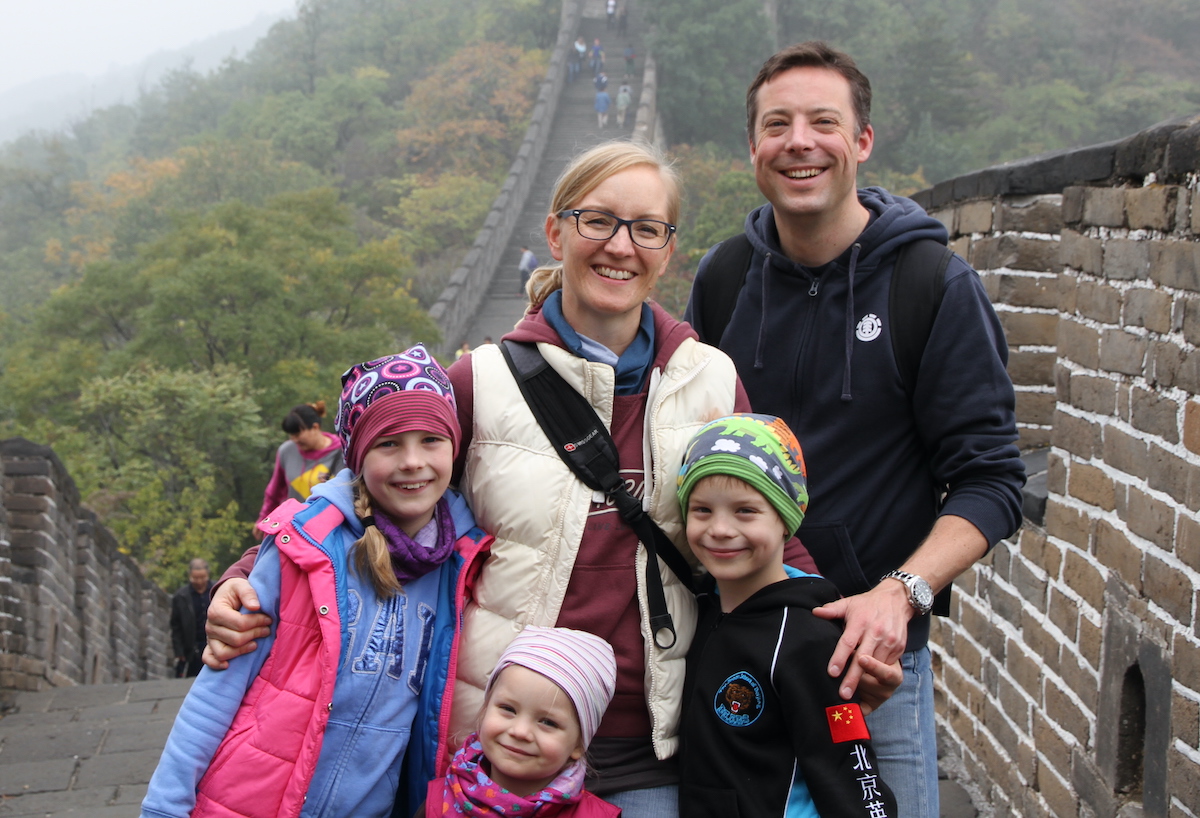
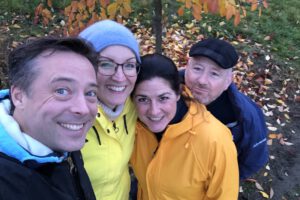

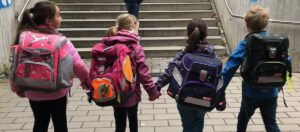
Pingback: 2021 - A year for health and connection - Trainer, Coach & Mentor for Global Women and Families
Pingback: Getting to know me - Global Mobility Trainer Opinion